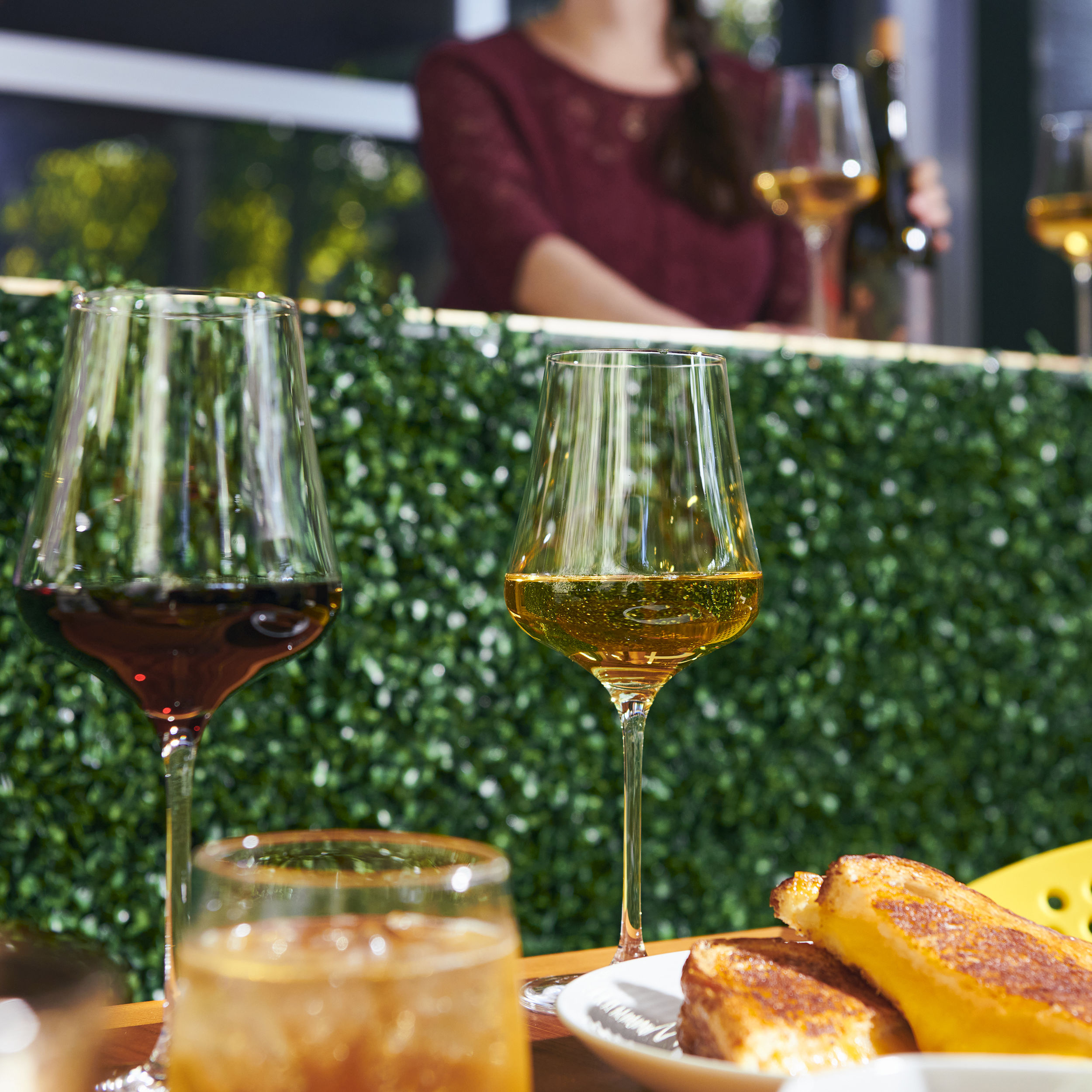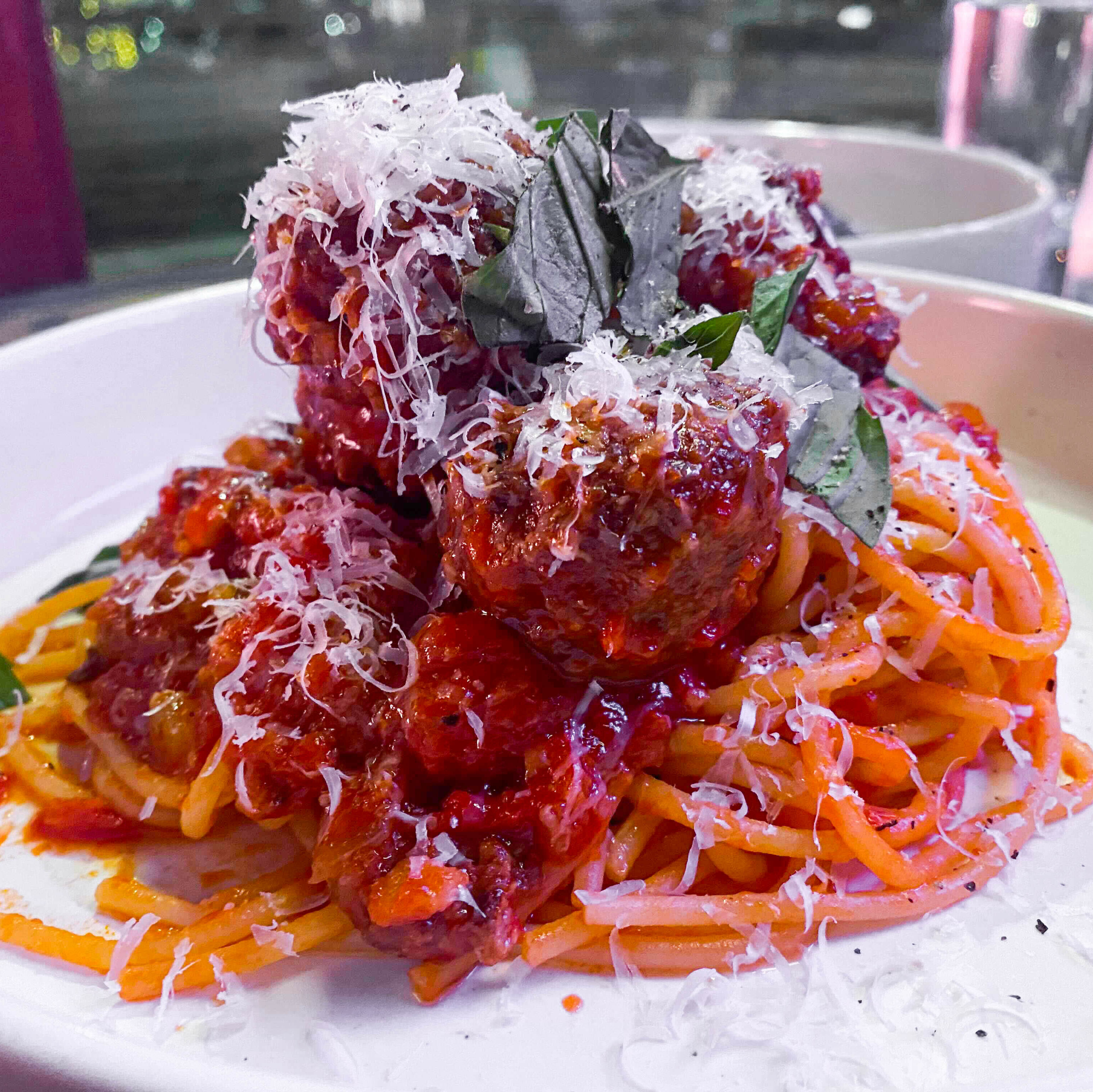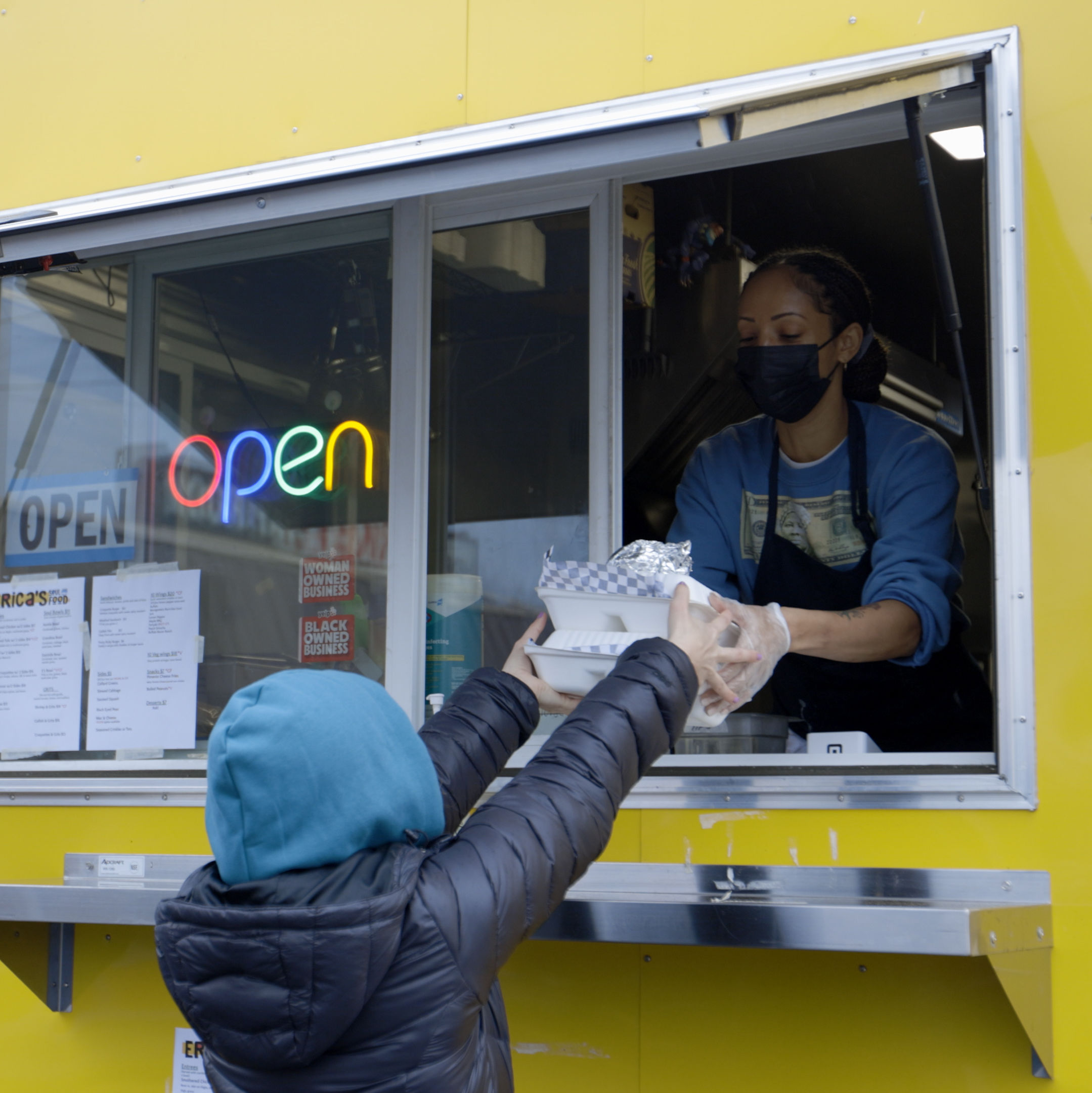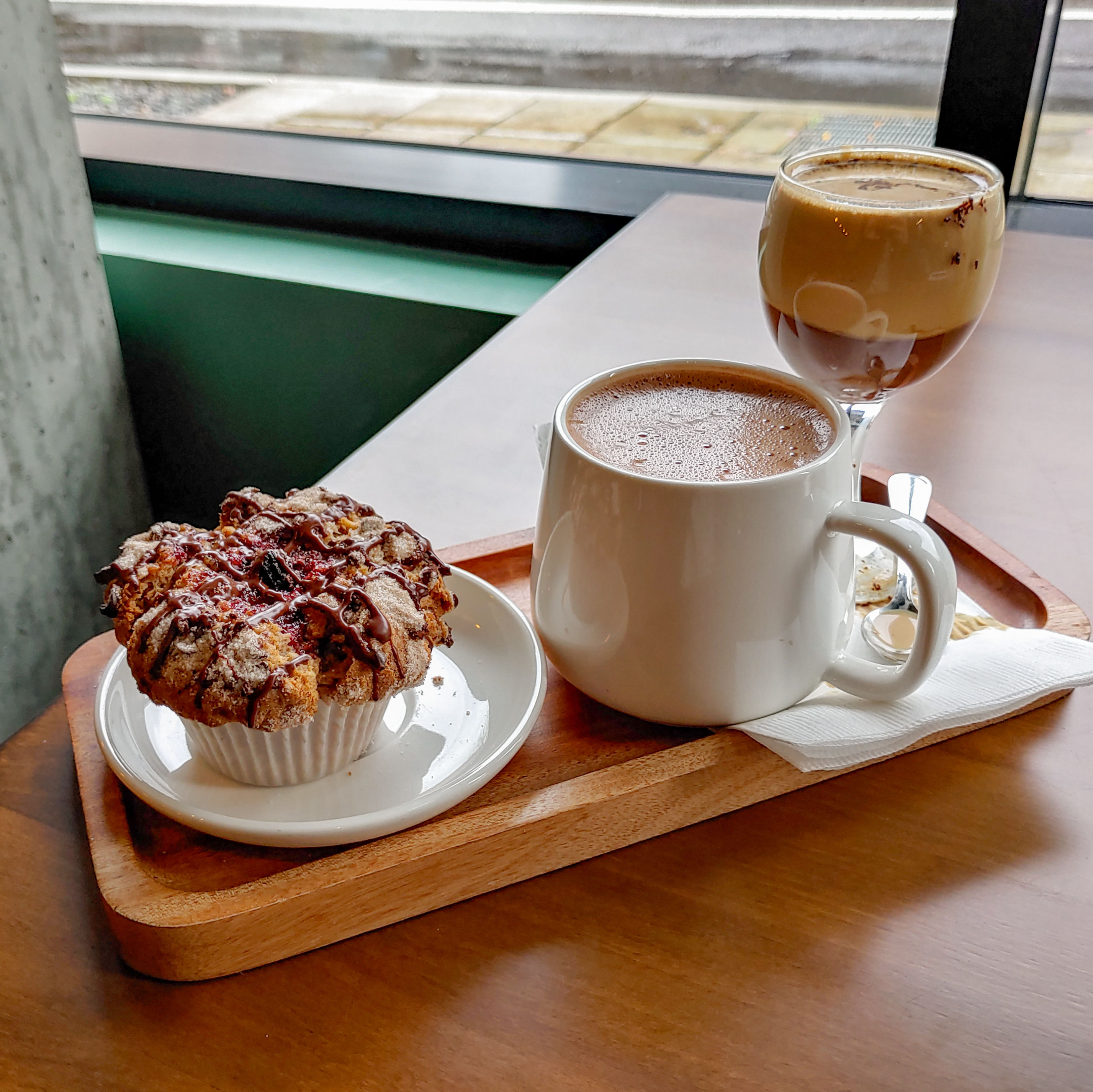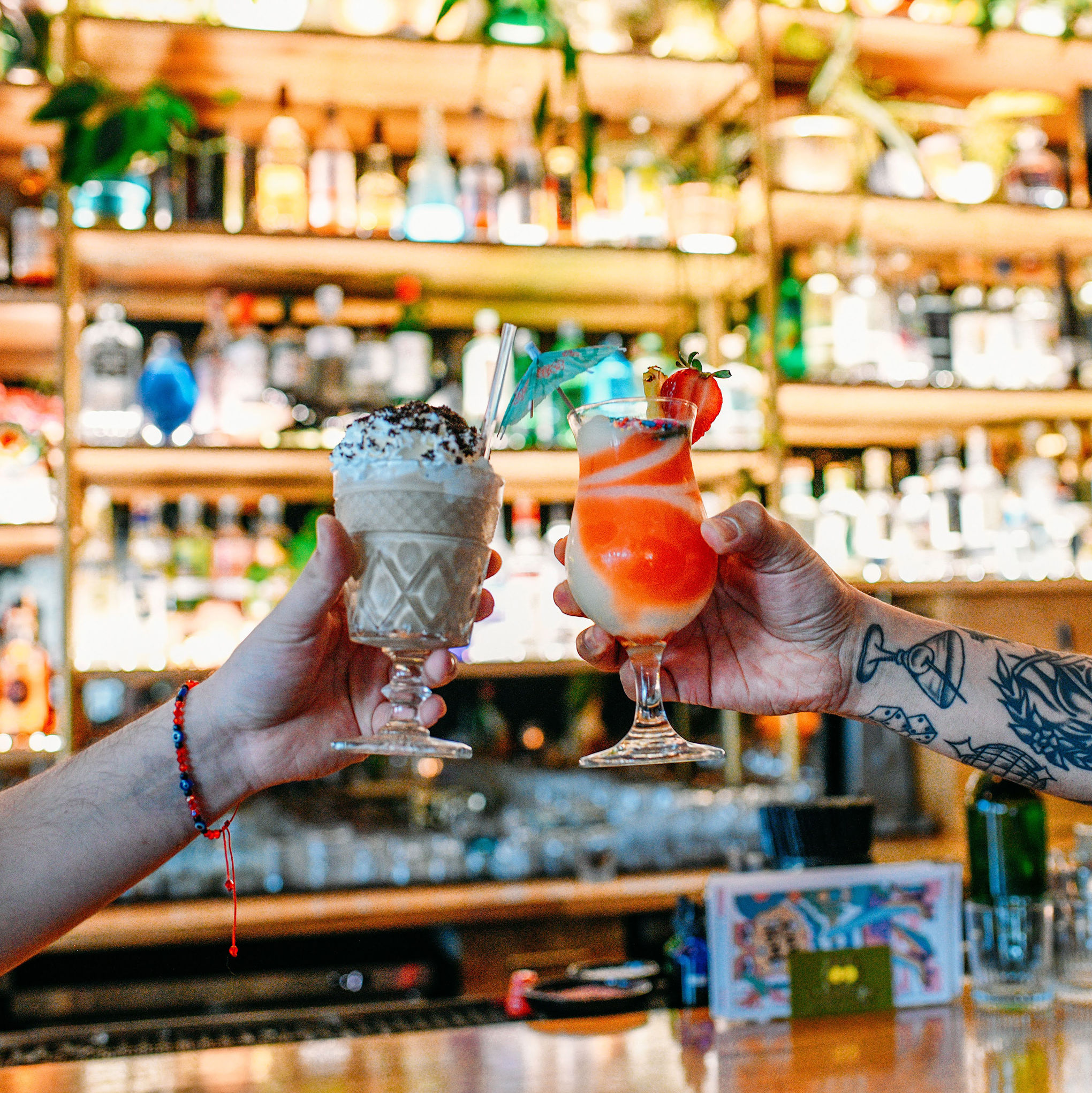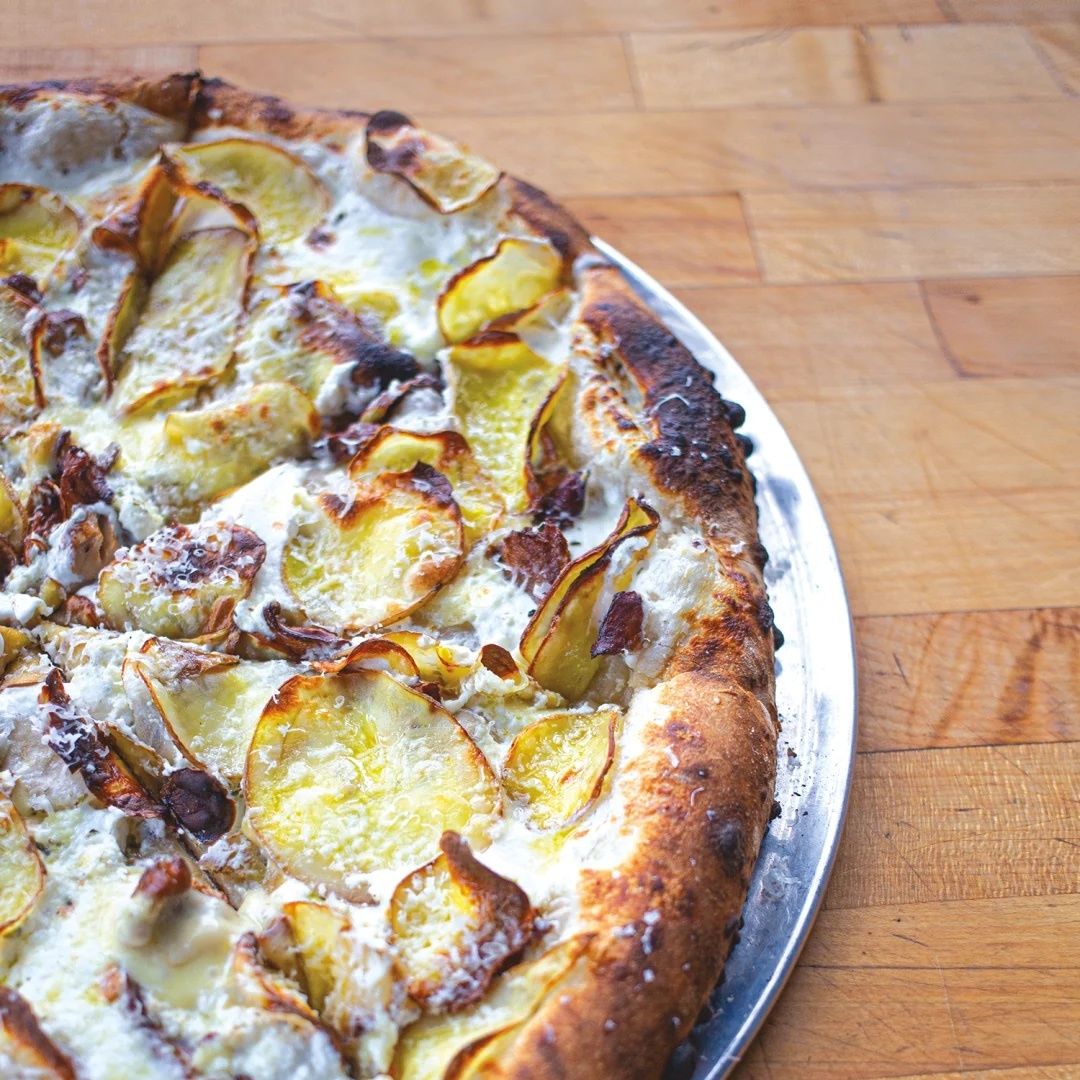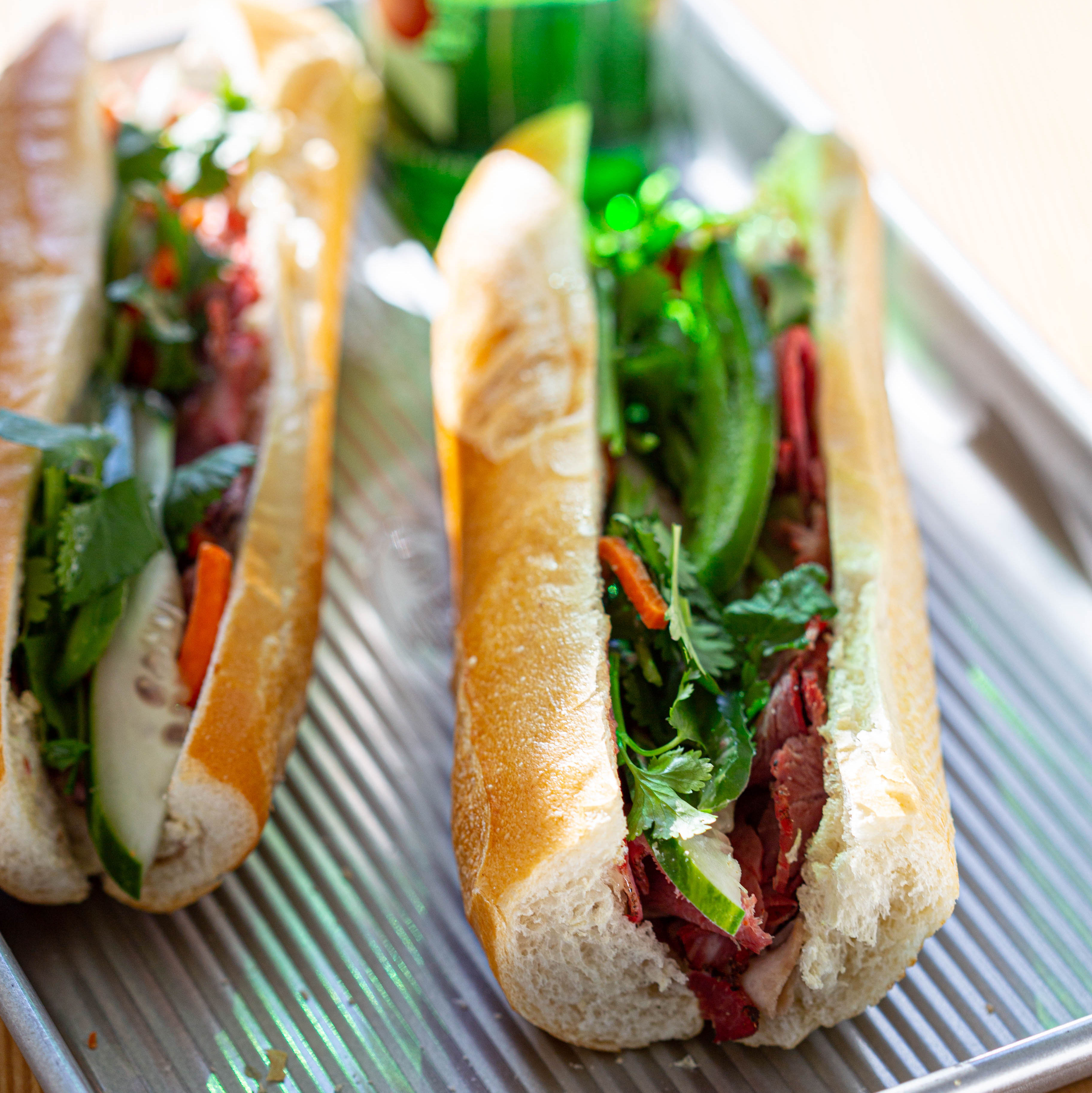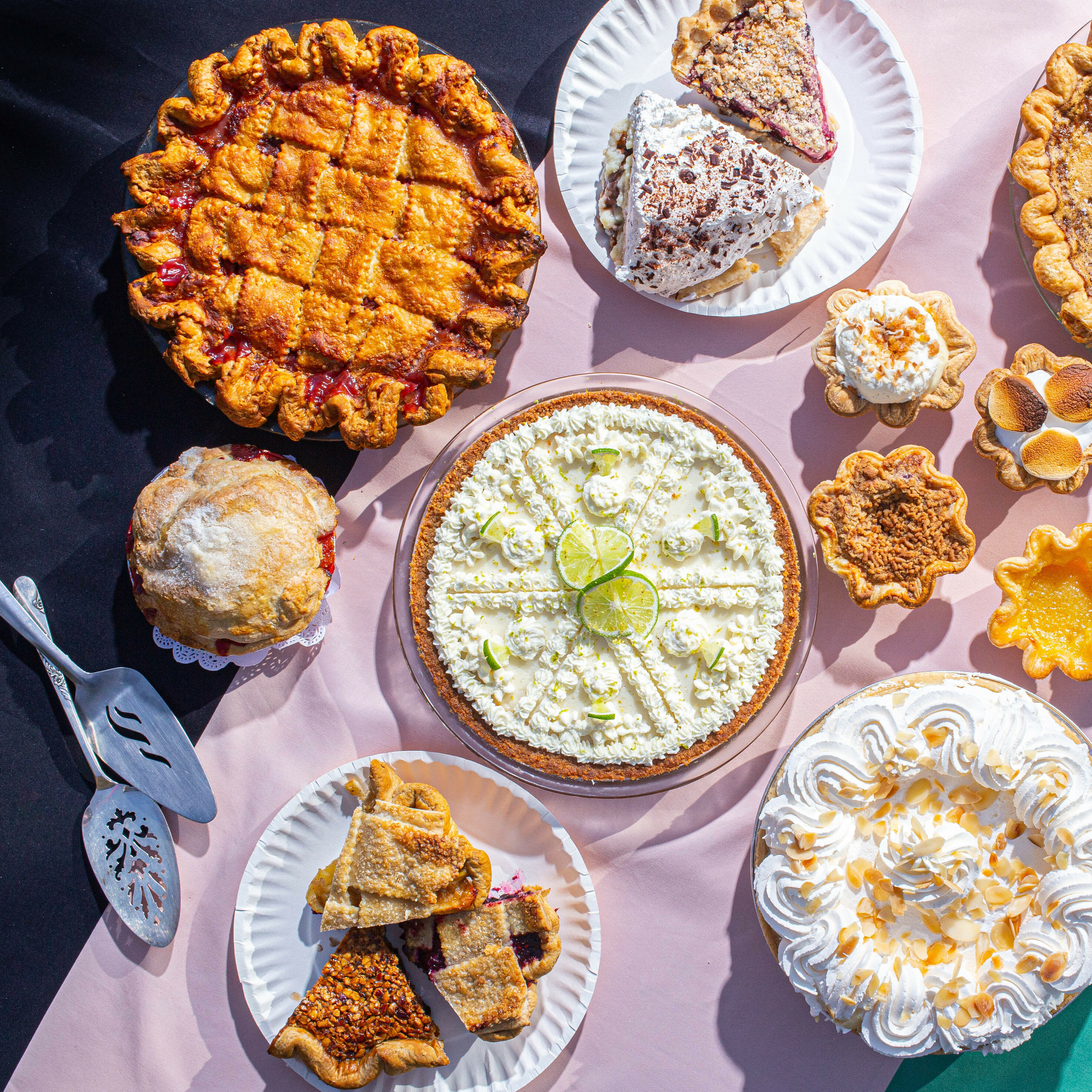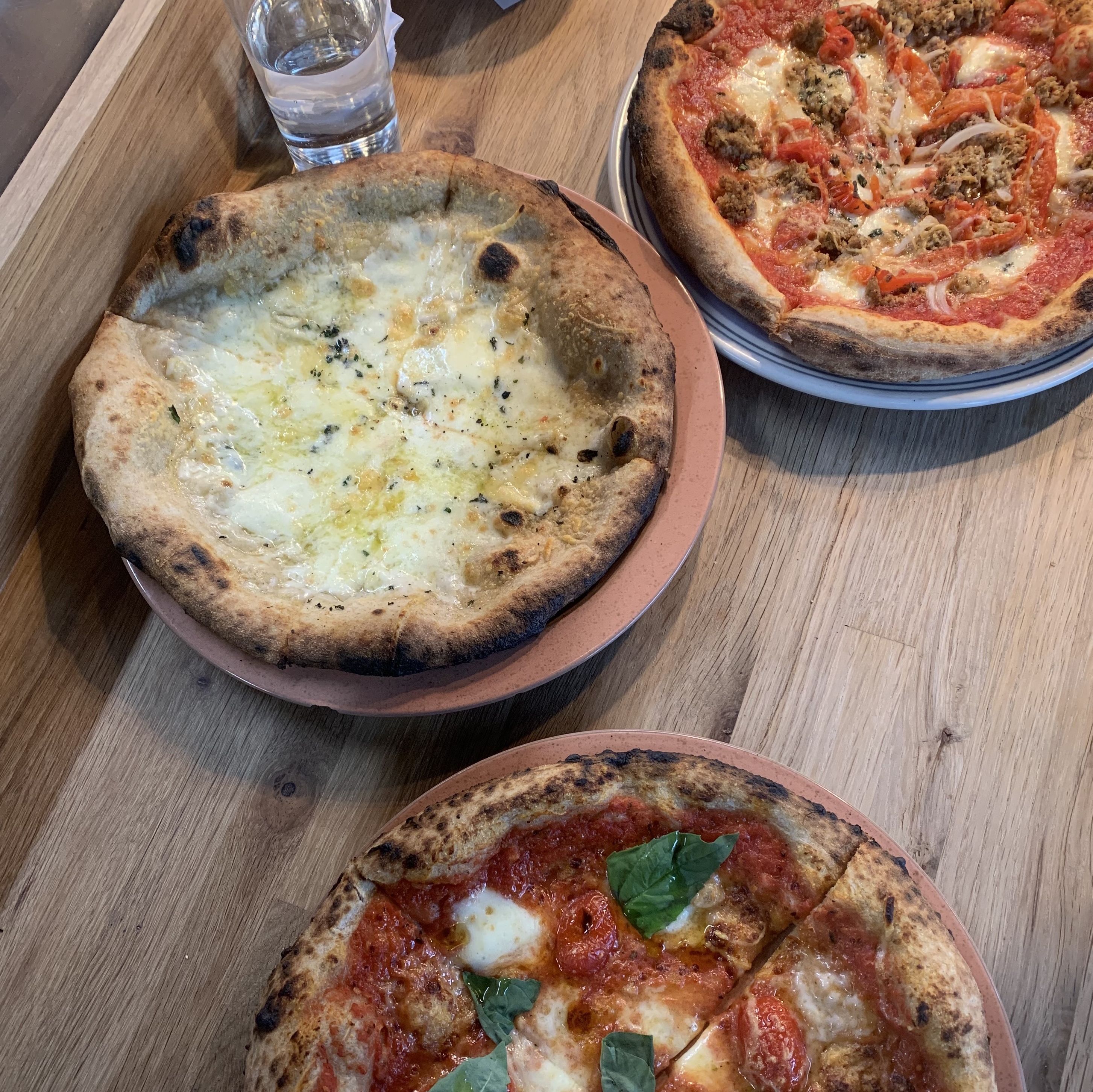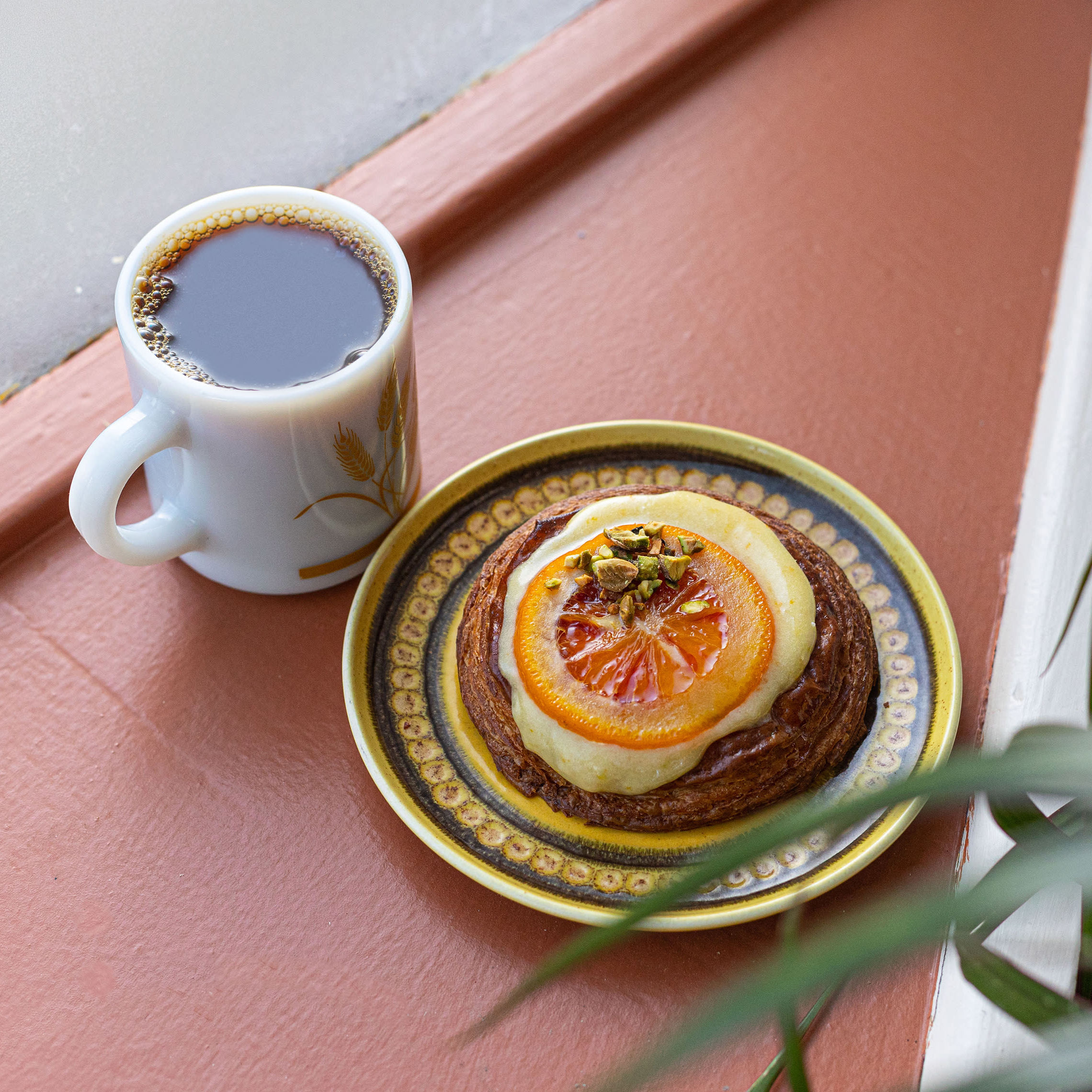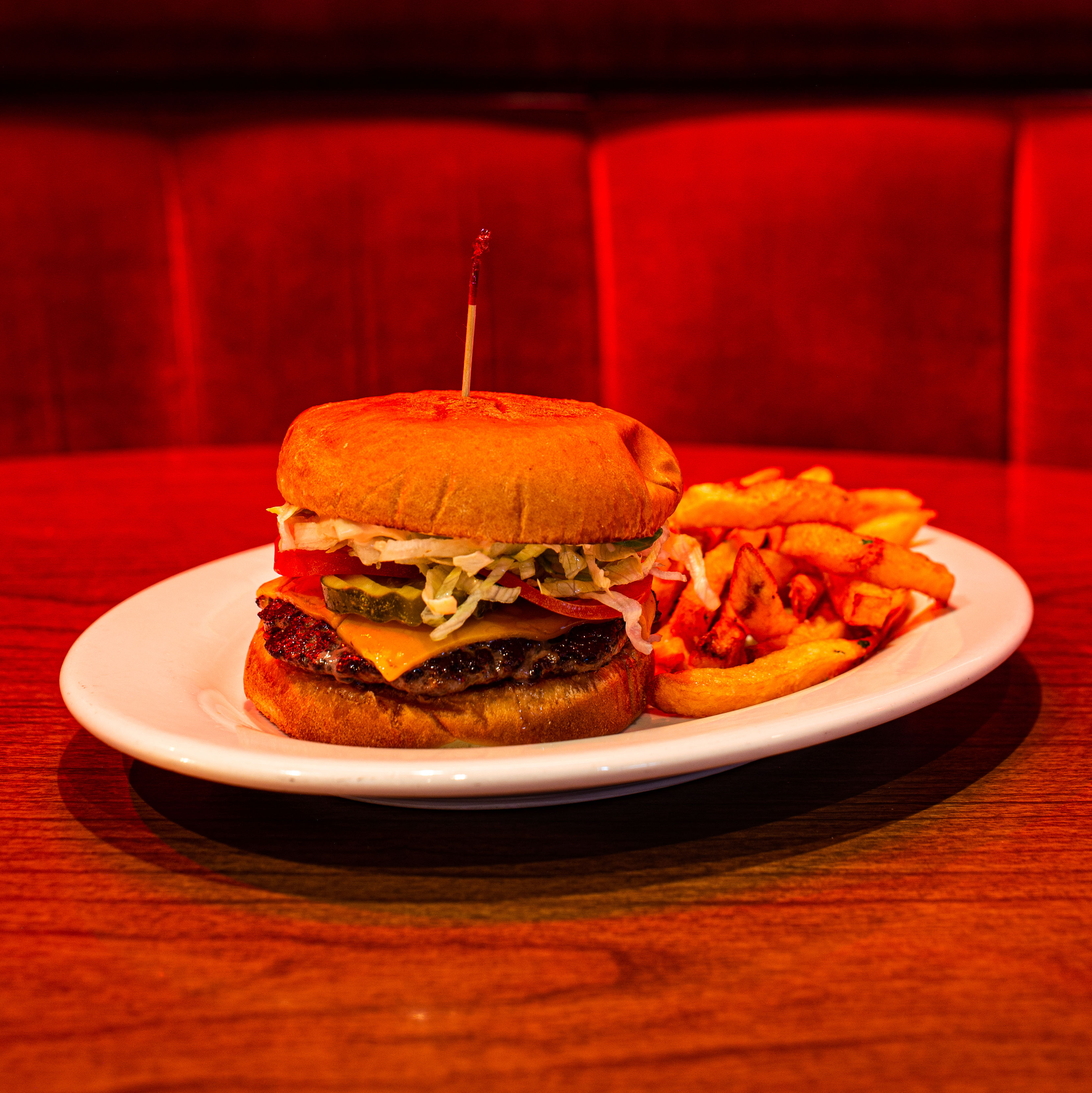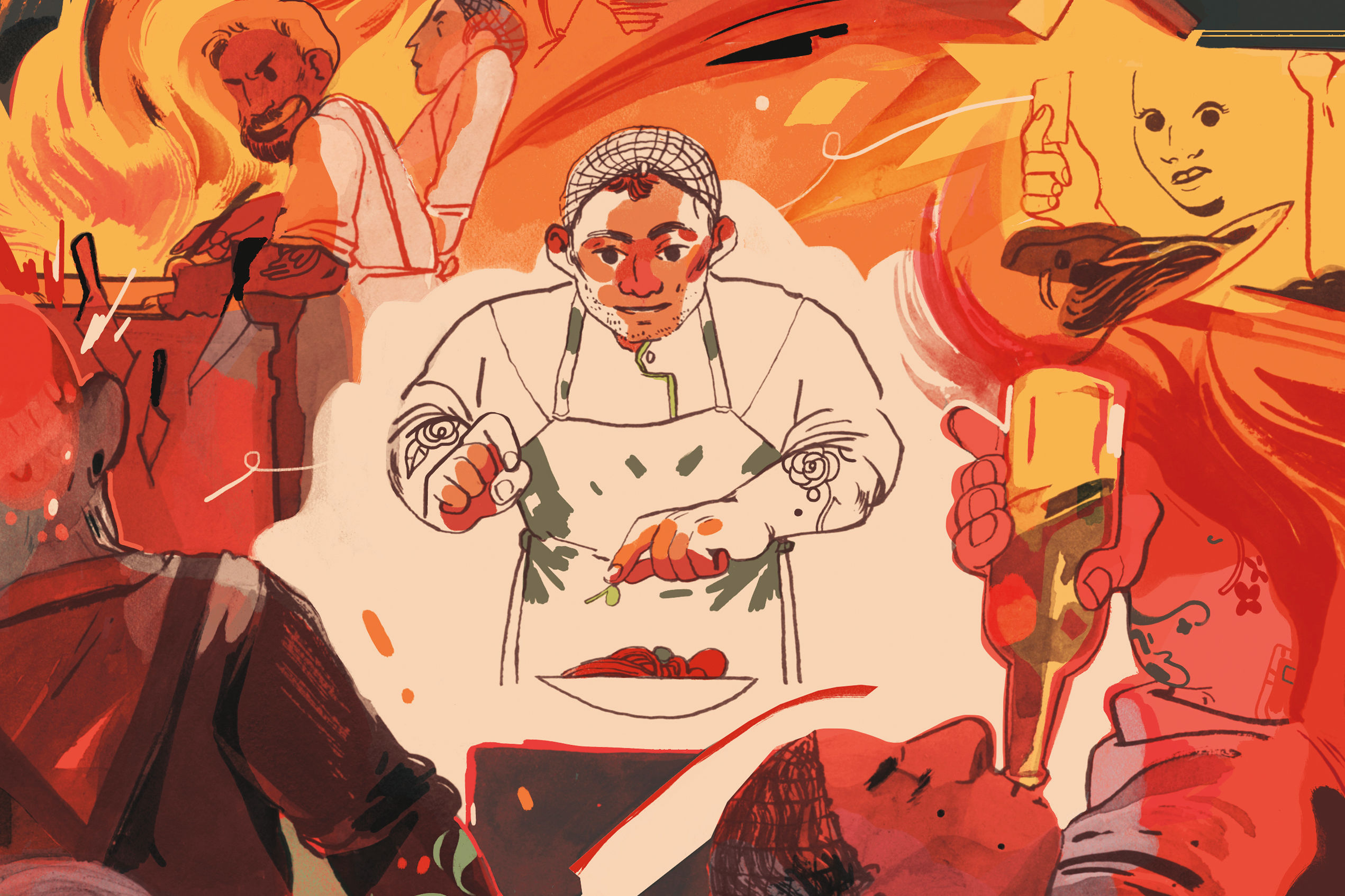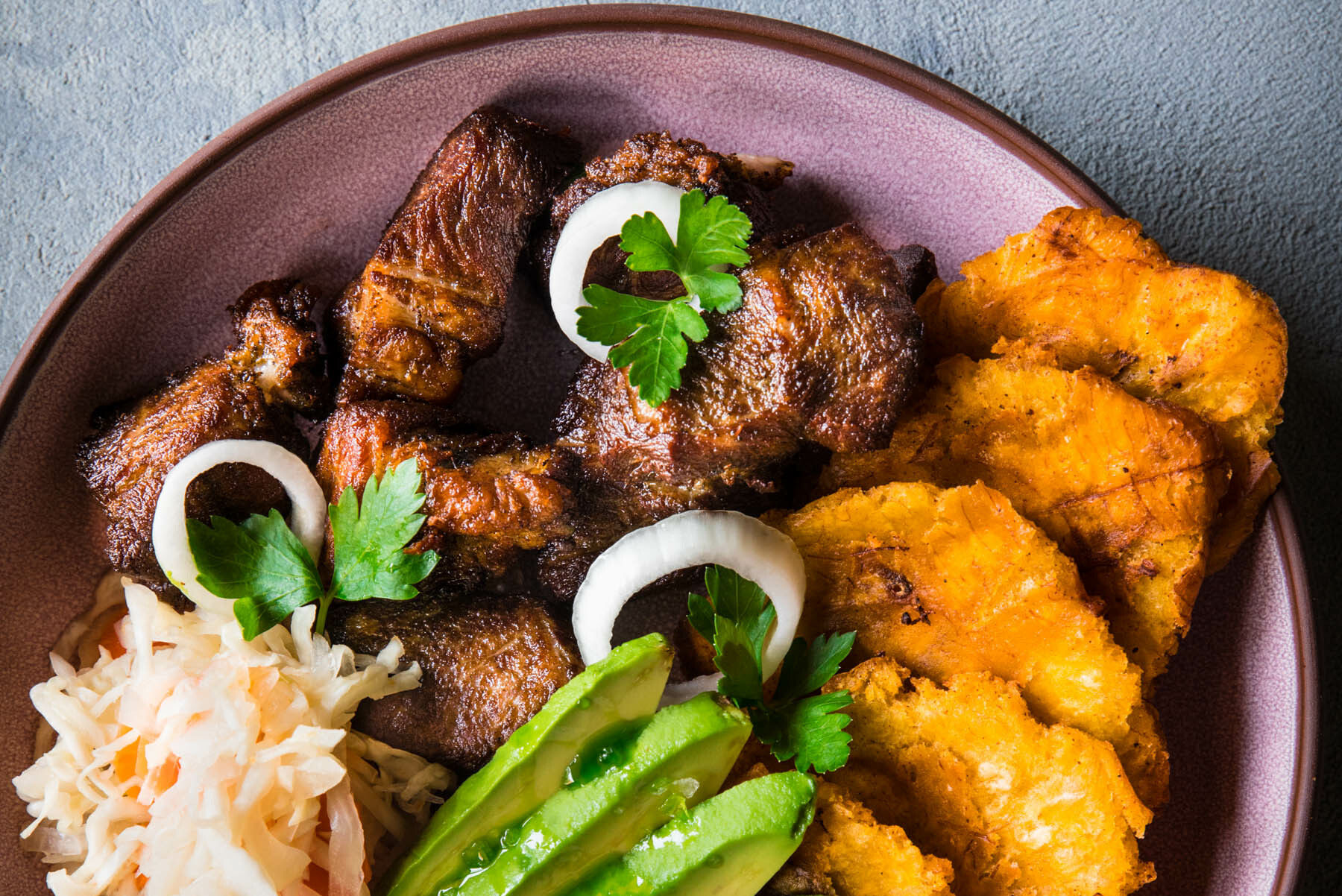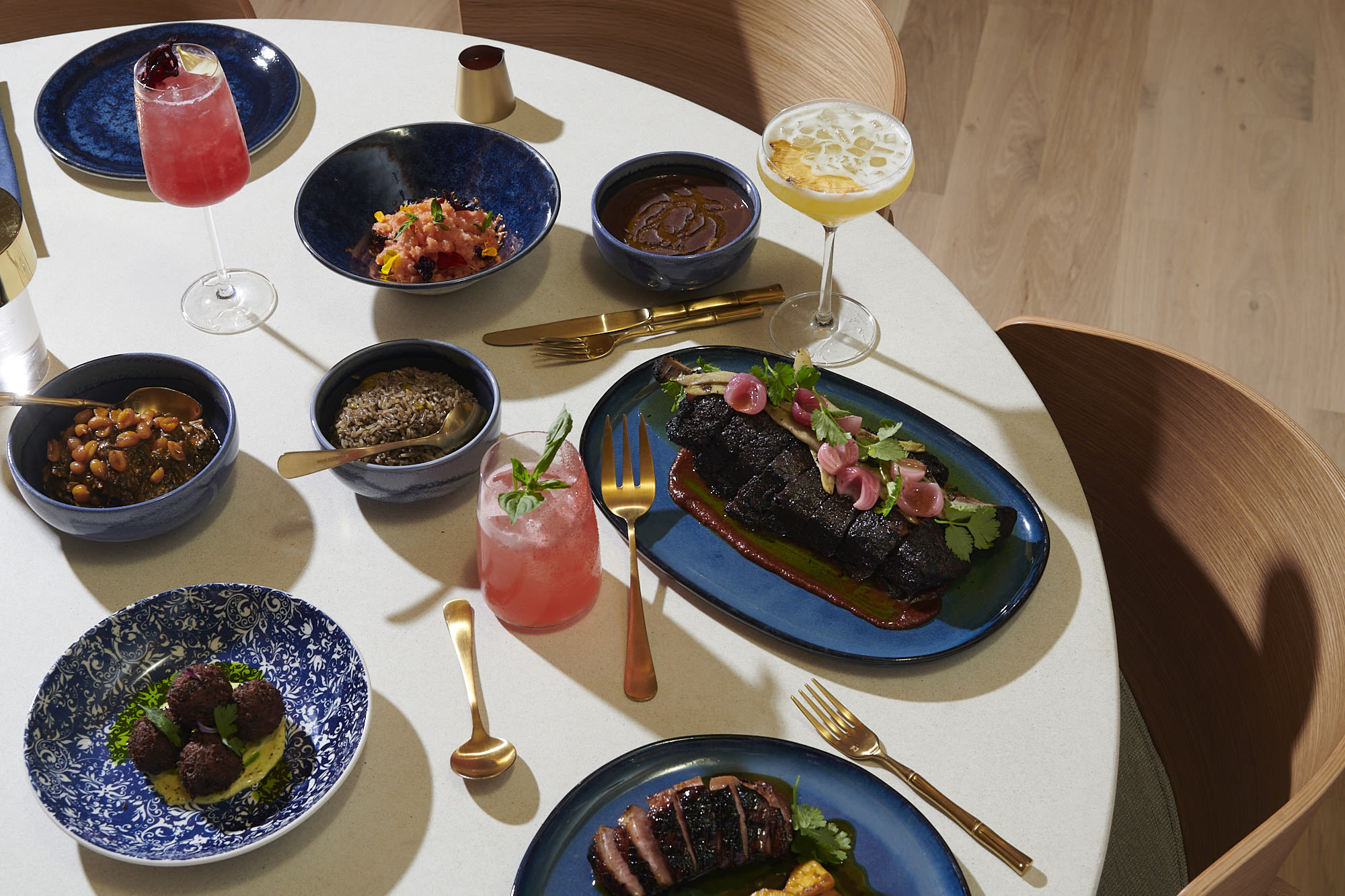
Kann Is Portland Monthly’s Restaurant of the Year: 2022
Pictured above: Kann's cooking embraces tradition but also detours in an
imagined Haiti, watermelon shaved ice over butterfish crudo to a beastial,
Haitian coffee rubbed short rib (front right).
The doors at Kann open at 4 p.m., and it's instant prime time. By 4:25, the house of Gregory Gourdet—celebrity chef and people's champ—is packed and intense, popping with joy, uplift, and spice levels that can fog your ears. Sir Victor Uwaifo, the Nigerian legend who could play the guitar with both feet as well as his tongue, is on the sound system, sending shoulders swaying. Loud? By nightfall, conversation is full primal scream. It helps to know sign language here.
Gourdet’s mission: to put his family's Haitian food culture on equal footing in a world that has ignored it. But the path is not simple or obvious.
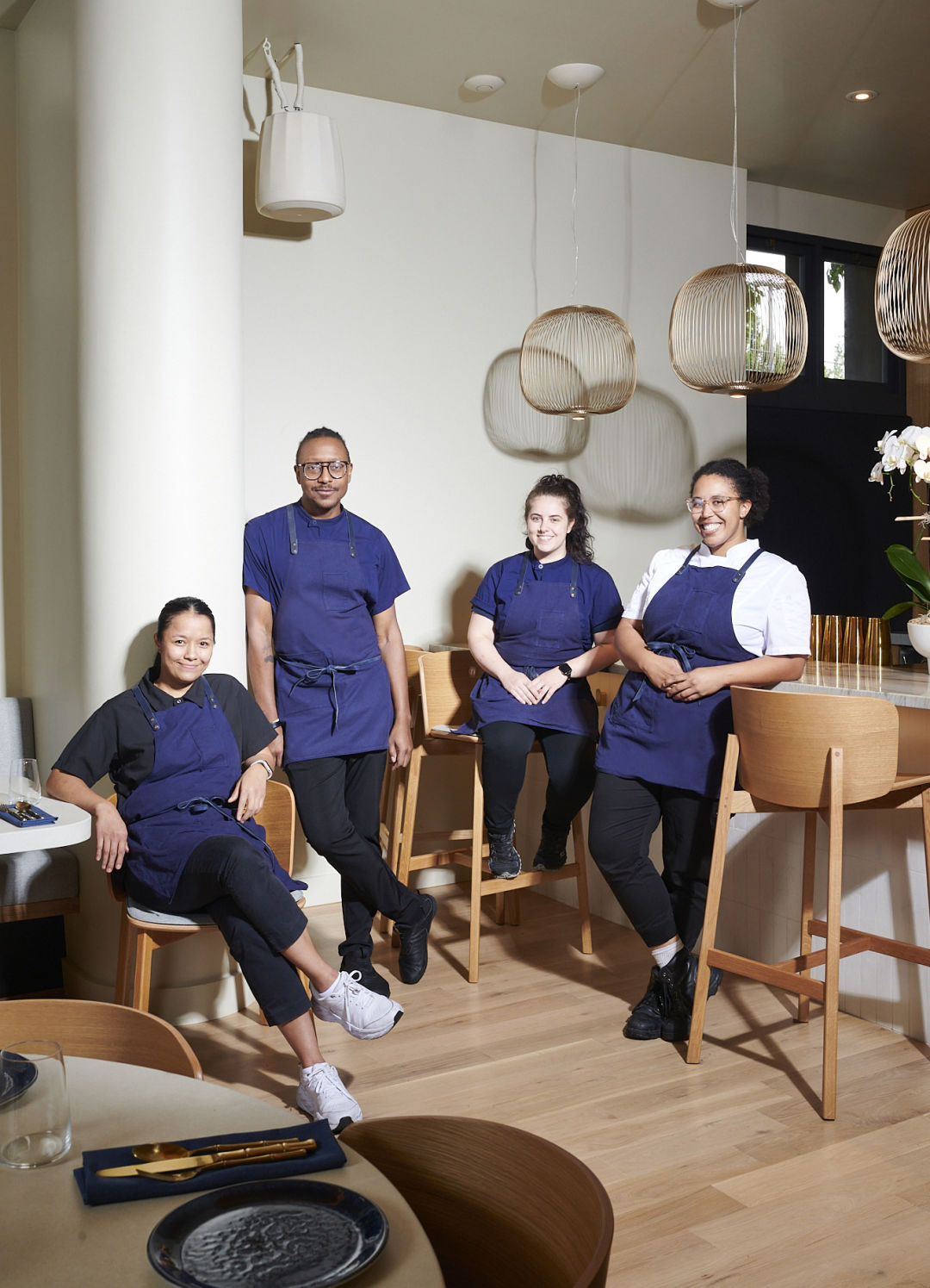
The crew (from left): chef de cuisine Varanya Geyoonsawat, chef Gregory Gourdet, sous-chef Hannah-Ruth Wilson, and pastry chef Gabby Borlabi
Image: thomas teal
You can find tradition here: smoke and wood fire, tubers and soursop, the heat of the tropics. That includes diri ak djon djon—paella-like rice, steeped in a tea of Haitian black mushrooms, an inky delicacy, then crowned in buttery lima beans. Plantains are insane, ripened the Haitian way, over days, until super sweet and black as midnight, and then baptized in a deep fryer until crackly outside and custardy inside.
But Kann also detours into an imagined Haiti—dishes conjured with West African influences, Caribbean crops and rhythms, and Gourdet's down-to-earth elegance. That might mean watermelon shaved ice glistening over butterfish crudo, with chile-flaming watermelon juice poured on top tableside, one of the year's great inventions. Or a labor-intensive duck lacquered in tamarind and cane syrup. Salads are in their own lane, chunked with sugarcane-glazed squash, plantains, pomegranate seeds, and coconut-habanero dressing.
It adds up to a new food language. Everyone is welcome to the table. Gluten and dairy are nowhere to be found. Oregon seasonality is celebrated. The woman-strong kitchen staff includes chef de cuisine Varanya Geyoonsawat, a Bangkok native. And booze-free diners are put on equal footing: half of the playful cocktails are zero proof, a commitment born from Gourdet's own sobriety.
Bottom line: One of the hottest restaurants in the country is a Haitian restaurant in Portland, Oregon. Kann is not just Portland Monthly’s Restaurant of the Year—it's one of the most significant openings in America in 2022.
The ethos is Portland—my truth, my way. But the vision is global, cosmopolitan, a place that would be at home in Miami, London, or Manhattan. At its core, Kann delivers a great experience and dynamic food. But it’s also a game changer for what it means to open up a restaurant in Portland. Kann augurs a new Portland, a changing Portland. It stands for what is possible.
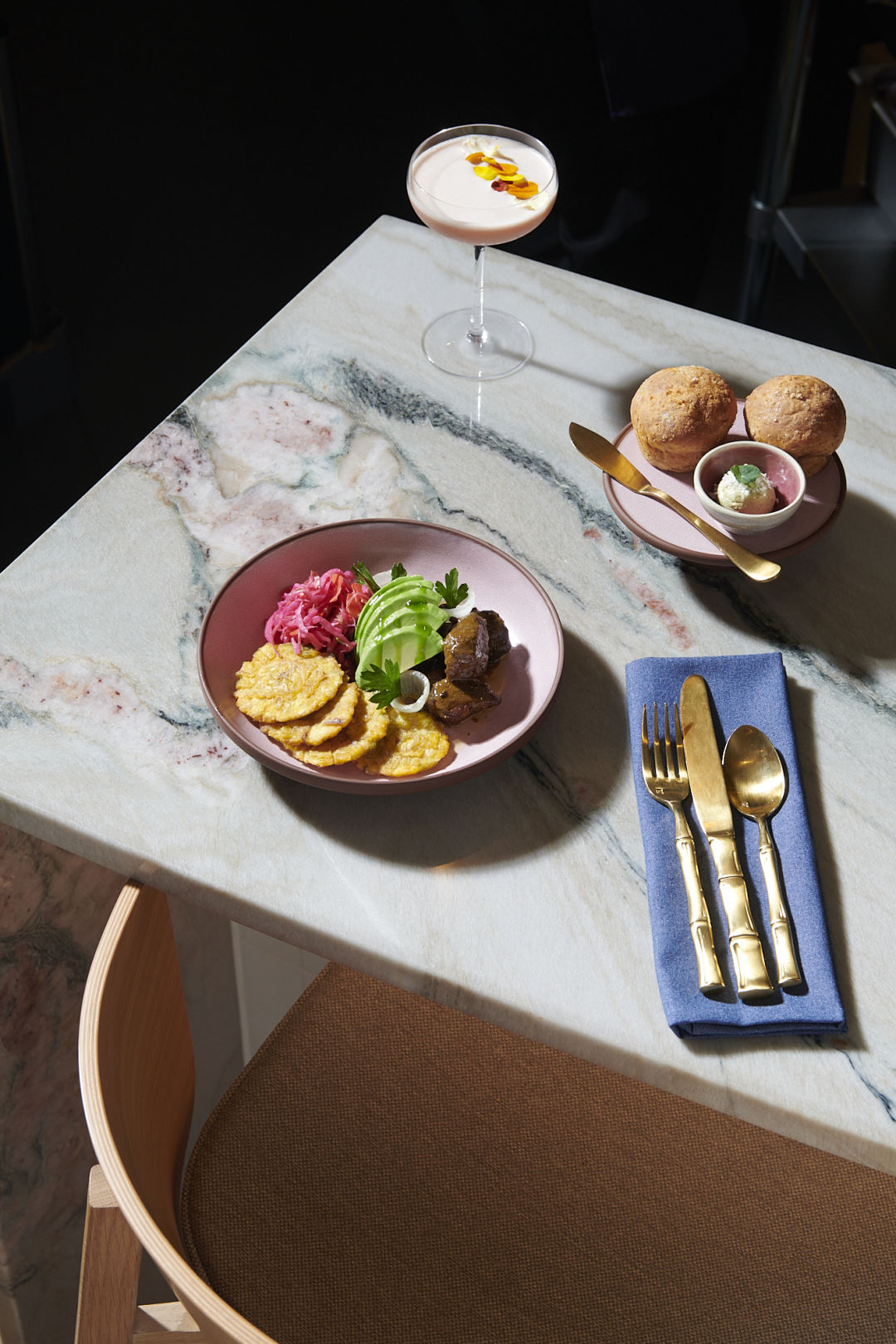
Kann's signatures include warm, fresh-baked plantain muffins and griyo, Haiti's famed dish of twice-cooked pork sided by fried green plantains and spicy pikliz cabbage.
Image: thomas teal
My ordering advice? Get all the starters, wallet and stomach permitting. No misses here. Think Damian Lillard hitting seven consecutive three-pointers.
First up, warm plantain muffins, presented on a pink stone pedestal. On the side: a mind-expanding vegan butter whipped with epis seasoning, the foundational peppers, garlic, and herbs that form the backbone of Haitian cooking. Meanwhile, the kitchen's hot, salty, crisp-crackly akra fritters put a sexy swagger in … grated taro root?
Griyo, or “twice-cooked pork,” Haiti's humble national dish and popular with street vendors, is ready-made for Instagram here: intensely seasoned braised and fried meat colorfully arranged alongside vinegar-banging pikliz, avocado slivers, and bannann peze, thick cushions of fried green plantains. Eat it as Haitians do—a little bite of this, a little of that, all the flavors and textures jumping off each other.
Collards are among the best I’ve eaten, glossed in house peanut butter and coconut cream, then garnished with the pop and surprise of whole pickled peanuts. Terrific.
Bigger plates get the smoke and live-fire treatment. The massive smoked beef rib, its sides rubbed in locally roasted Haitian coffee, is an homage to bestial glory, jutting bone and all. At $92, it's a feast for three. On a recent evening, Damian Lillard took one down by himself. Whole fish boasts fantastically crispy skin, though the lake of olive oil was too much for me. Glazed duck, exquisite one night, is muted the next. Clearly, the kitchen is finding its rhythm.
The sleeper revelation: wood-fried roast cabbage, served as a massive wedge, its leaves full of great char and chew, like blackened cabbage leather. A vibrant African-inspired pepper sauce pools below, and the smoky herring on top calls out to Haitian breakfasts. I've never tasted anything like it. “I'm sorry to all kitchens for not respecting cabbage,” wails my friend Ellen.
Beer is the perfect cooler in this company, though the list is small. Kann's focus is cocktails, and I wish they were a little more luscious against the constant thrum of spice and thrash. Best so far: the Hearthfire, a tequila-fueled ear-warmer rimmed in tingly spices, and Grenadia, a zero-proof charmer of passion fruit drinking vinegar, vanilla, and star anise cordial. The wine list is considerable, with a dozen glass options and notations on winemakers identified as Black, queer, or women-owned.
The dessert that blows my mind? Soursop ice, with little pockets of strawberry jelly and coconut curd buried inside. The spiced Haitian chocolate mousse sounds better than it is. But the grilled pineapple upside-down cake is a fine closing argument,moist, weighty, sweet, tangy, deep in caramel notes, and sided by rum raisin ice cream. Oh, yeah.
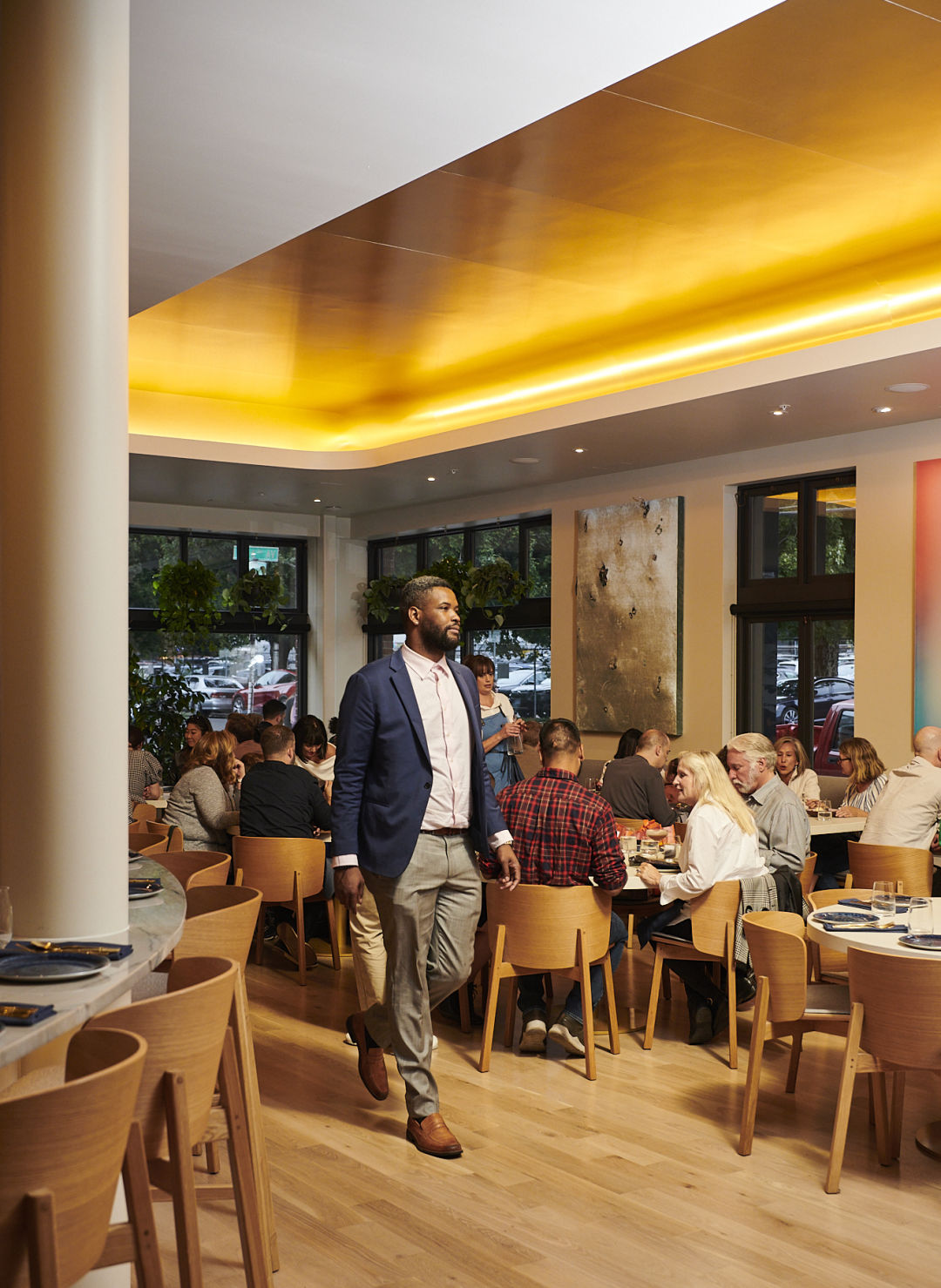
General manager Damont Nelson doubles as Kann's party host in one of the city's most beautiful rooms.
Image: Thomas Teal
The setting for all of this looks right out of a TV show, and it's not The Bear. A theatrically lit kitchen and chef’s counter occupies nearly one-half of the space, complete with gorgeous built-in white oak cabinetry and a flaming eight-foot hearth. Gourdet is unapologetic and un-Portland in his love of luxe. Never has this city, the mythical home of rebels and anarchists, so embraced a multimillion-dollar project.
The room fills with African families, off-duty chefs, hip-hop kids, musicians. Weeks after Kann opened in early August, Haitian diners were flying in from DC, Colorado, even Haiti—Miss Universe Haiti has a reservation. Some Haitian diners are quietly weeping with pride. Others are just eager to experience their cooking on a grand platter, a powerful testament to resilience against the backdrop of what is happening at home.
Pink Martini's Thomas Lauderdale, a late-night Kann regular, sums it up perfectly: “This is the dining hall in the Portland we want to live in. People of color, all ages, vegans, even white people.”
Don't feel bad if you can't get in. Getting a seat at Kann right now is like landing Blazer playoff tickets. Even Congressman Earl Blumenauer bragged to me recently that he has a reservation … the following month. Apparently having a bike and pedestrian bridge named after you is not an instant ticket to a two-top at Kann.
Every generation, one or two places comes along that change the conversation. Thirty years ago, Greg Higgins envisioned a farm-to-table future and recruited like-minded chefs to the dream. In the early 2000s, Ripe Supper Club and Le Pigeon applied the spirit of punk rock to food and inspired Portland's DIY movement. Kann clearly joined the club the night it opened.
Kann, 548 SE Ash St, kannrestaurant.com; IG: @kannrestaurant, @gg30000
Editor's note: This story has been updated since it was originally published in September.
